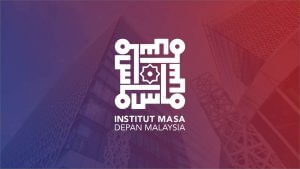Inculcating humanitarianism in our kids

By Mohamed Azmi Mohd Rasheed Khan, Head Corporate Services Division, Institut Masa Depan Malaysia
Humanitarian concerns loom large as the Palestine-Israel conflict keeps unfolding.
Civilians, including elderly women and children, have borne the brunt of the Israeli military’s violence and the release of hostages, a focal point of the truce negotiations, emphasises the protection of civilians, in particular the elderly and children, and the importance of releasing captives to pave the way for a more stable situation.
According to the Office of the United Nations High Commissioner for Human Rights (OHCHR), the bombardments and genocidal attacks by the Israelis have reportedly killed over 11,000 people, injured more than 27,000 and displaced over 1.6 million persons so far.
Of those killed, about 41 percent are children and 25 percent are women. On average, one child is killed and two are injured every 10 minutes during the ongoing war, turning Gaza into a graveyard for children.
The international community, alarmed by the severity of the situation, has sought avenues for de-escalation.
Qatar emerged as a mediator, facilitating a truce that allowed for the delivery of that much-needed aid into Gaza. Under the agreement, fuel, gas and humanitarian assistance are set to enter Gaza – providing relief to the besieged enclave.
Several other nations and organisations have actively engaged in efforts to address the conflict and, Malaysia, a prominent member of the Organisation of Islamic Cooperation (OIC), has played a crucial role in advocating for a peaceful resolution.
Malaysia’s involvement in the conflict emphasises the significance of a united Muslim response to the crisis.
At the local front, various relevant authorities and the Malaysians themselves, regardless of race and religion, have come together to organise all sorts of related programmes or events as a way to talk to people, children, in particular, about the violence taking place in Palestine.
Of course, some of our children might be still grappling with questions about why those children in Gaza are suffering and being killed!
It is not an overstatement to say that the pro-Palestinian rallies and protests held by NGOs and other bodies including political parties, and the Palestine Solidarity Week by the Education Ministry, have been able to some extent, inculcate humanitarian values, or what we could term, humanitarianism, among students.
Besides fostering attitudes of empathy and concern for the suffering of individuals, irrespective of their race, religion or social status, the events or programmes have, indeed, sent the right messages and teachings to our younger generations.
We could also sense the fostering of a sense of global peace and humanitarian values that can help shape our children’s characters that align with the principles of civility.
Indirectly, they are able to understand the values of humanity, universal values and the importance of respecting the order of justice and the untold damage wars can do to the human race.
As this article is being written, no violence or complaints have been reported against rally organisers, except for a handful of petty incidents, while #FreePalestine songs such as “Atouna El Toufoule” and “Dammi Falastine” have become viral and been sung by our children, adults alike, in earnest.
These songs seem to have been magnetic, in connecting us, regardless of our age, in one way or another, in solidarity.
They have become a unifying force of sorts, instilling amongst us good, humane values, human rights, tolerance and courtesy.
The urgency for solutions to the ongoing conflict requires not only immediate humanitarian action but also a commitment to long-term solutions, including addressing the status of refugees and navigating the intricacies of Jerusalem and Jewish settlements as crucial components of a comprehensive resolution.
We stand at a critical moment in history where the tragic events unfolding in Gaza demand urgent attention and action.
The uncertainty surrounding the death toll underscores the immense human suffering, and there is an urgent need for accountability to prevent the conflict from fading into obscurity.
The social media and news have been saturated with images of seemingly unspeakable violence – Palestinian children, living in deplorable conditions and dead, children’s bedrooms smeared in blood and dust and all.
Many children, of all ages, are likely to have heard or seen something already, whether from peers or by picking up on news broadcasts or by overhearing conversations.
Our future generations will, undoubtedly, question our response to this humanitarian crisis, prompting reflection on the collective responsibility and readiness that we all must make to stand against the atrocities committed by Israel and the urgent, demanding work needed for a more just and peaceful co-existence in this increasingly hostile world.

